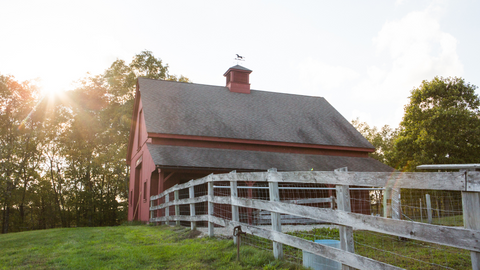Agroecological Lighthouse


If you’ve perused our website or scrolled our social media before, you may have heard us use the term Agroecological Lighthouse in reference to our farming model. But what does it really mean?

To start, we should probably discuss what agroecology is itself! Breaking the word down into its two major components might help reveal its holistic meaning. “Agro” refers to the idea of an agricultural practice- how we raise our livestock and grow produce or cereals. Ecology refers to the branch of biology that studies the relationship between living organisms and the physical environment in which they live. Together, they reference an academic in which scientists study agriculture within the context of the environment. Agroecology is the lens we use to view how our farming practices have an ecological impact and develop relationships with local flora and fauna as a member of their ecosystem! So what does agroecology have to do with a lighthouse?

The phrase “agroecological lighthouse” was coined by the agronomists Miguel Altieri and Clara Nicholls at the University of California, Berkeley. The phrase emerged from their 2018 publication titled Pathways to Amplifying Agroecology in the journal of Agroecology and Sustainable Food Systems. In this article, the authors describe pathways for expanding the benefits of agroecological practices and scaling models that have proven to enhance the sustainability and resilience of an ecologically-mindful farming system. One particularly effective strategy was the creation of “agroecological lighthouses”, or a space in which the principles of agroecology radiate from one central location, much like a lighthouse illuminates a bay. Agroecological lighthouses demonstrate efficient, biodiverse, and synergistic practices, modeling an effective way of integrating agriculture into a landscape without environmental or economic consequences. They serve to educate their surrounding community in hopes of promoting these practices to other farmers, consumers, institutions, policy-makers, and organizations.

Azuluna Foods works ardently to serve our region as an agroecological lighthouse. One approach is through our hub-and-spoke model, which not only makes regenerative agriculture more accessible through the distribution of resources but provides rigorous animal welfare and land management standards– educating the next generation of livestock farmers on agroecological practices and expanding the benefits of regenerative stewardship. To learn more about this system, visit our Azuluna Farms website or visit the “Community” section of our journal to read our hub-and-spoke blog post.

Our education initiatives reach beyond the farmer to the conscientious consumer. Our hub farms serve to educate local youth, providing informational tours to local schools, creating robust animal science internship programs, and hosting summer experiential education workshops. By providing onsite visits, we connect folks with the land from which their food comes and inform consumers about the ecological impact of their dietary decisions. We hope our work empowers our community to vote with their fork, investing in food systems that improve community health, animal welfare, small farmer livelihood, localized economies, and environmental resilience.



